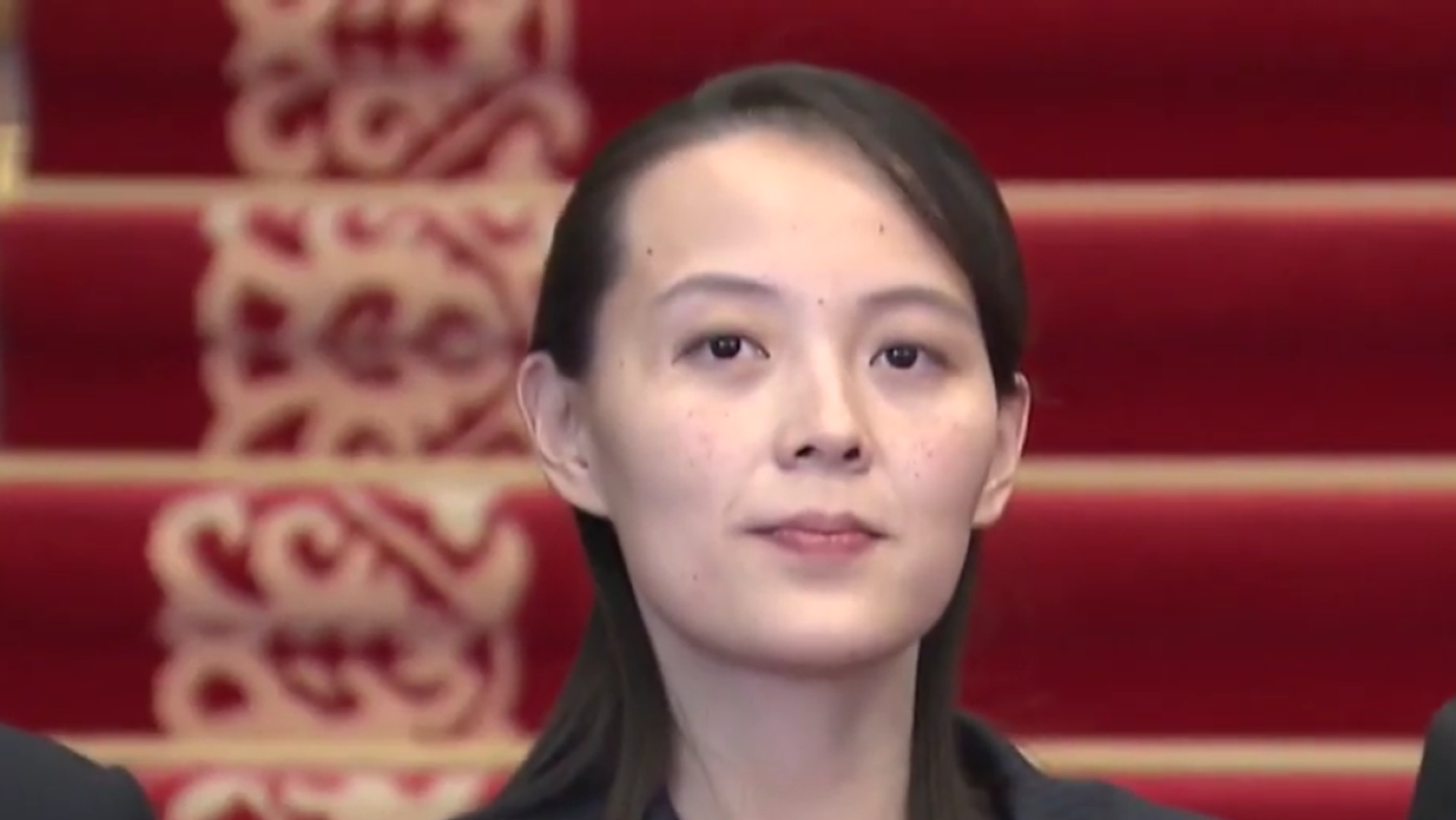DPRK Says Will Have to Use Nuclear Weapons if South Korea Mounts Pre-Emptive Attack - Kim Yo Jong
22:51 GMT 04.04.2022 (Updated: 13:37 GMT 18.09.2023)
Subscribe
North Korea has possessed nuclear weapons since 2006, which it says are necessary to guarantee its safety in the absence of a permanent peace treaty and US withdrawal from Korea. The US and its allies claim North Korean nuclear weapons are destabilizing to the region and a danger to the South.
Kim Yo Jong, the Deputy Department Director of the Publicity and Information Department of the Workers' Party of Korea, said on Monday that if South Korea followed through on recent threats of a preemptive strike against the North, Pyongyang would reply with nuclear weapons.
"In case South Korea opts for military confrontation with us, our nuclear combat force will inevitably have to carry out its duty," Kim said in remarks carried by Korean Central News Agency (KCNA).
However, she cautioned that "South Korea is not our principal enemy" and that the Democratic People's Republic of Korea (DPRK) is "definitely against such war."
"That's why our Marshal clarified that our principal enemy is just war itself," she said, referring to her older brother, DPRK leader Kim Jong Un.
"However, the South Korean Army, labeling us as enemy, talked about the possibility of mounting a preemptive strike on us with such a premise as in certain circumstances. Such nonsense itself is a very dangerous and nasty expression," Kim Yo Jong added. "If anyone does not provoke us, we will never strike it before anything else."
Kim's remarks come several days after South Korean Defense Minister Suh Wook made rare public comments about Seoul's preemptive strike doctrine against North Korea.
"Currently, our military possesses large numbers and various types of missiles that have greatly improved in terms of ranges, accuracy and power, and it has capabilities to accurately and swiftly strike any targets in North Korea," Suh said at an April 1 ceremony marking the reinforcement of the Army Missile Strategic Command in Wonju, according to Yonhap News Agency.
Kim previously commented on Suh's "absurd remarks" on Sunday, calling them "reckless" and saying it was indicative of "confrontation frenzy against the DPRK."
"It is no more than an ill-advised bravery not beneficial to them that he released such reckless remarks as 'preemptive attack' on a nuclear state," Kim said in a statement carried by KCNA. "His rash and excessive outburst on 'preemptive attack' worsened the inter-Korean relations and military tension on the Korean peninsula. We take his confrontation frenzy serious and cannot but reconsider a lot. South Korea may face a serious threat because of his foolish outburst."
Suh's comments, in turn, came after the DPRK carried out two intercontinental ballistic missile (ICBM) tests in late March, one of which failed shortly after launch. However, the Hwasong-15 missile likely has the potential to reach the western continental United States. The tests were the first of a long-range weapon since Pyongyang imposed a unilateral moratorium in 2017 intended to defuse tensions, and were in violation of United Nations resolutions.
The tests came shortly after the election of Yoon Suk-yeol to the South Korean presidency. The president-elect hails from the conservative People Power Party and opposes the reciprocal, trust-based engagement with the DPRK by his predecessor, Moon Jae-in. Under Moon's tenure, relations with Pyongyang warmed to their best in decades, with Moon visiting Pyongyang and the two sides taking strides to remove trade and communications barriers between them and even issuing an end-of-war declaration. However, when peace talks between the DPRK and US failed, the animosities returned.
Capitalist South Korea and socialist North Korea have been at war since 1950, separated by a civil war in which the United States intervened to fight off a Northern victory. China also indirectly participated, as did the Soviet Union, on the North's side, resulting in a stalemate and a ceasefire, but no permanent peace treaty. The US maintains a 28,000-strong garrison in South Korea and exerts a determinative influence on South Korean policy, ensuring such rapprochements like that under Moon only go so far.



